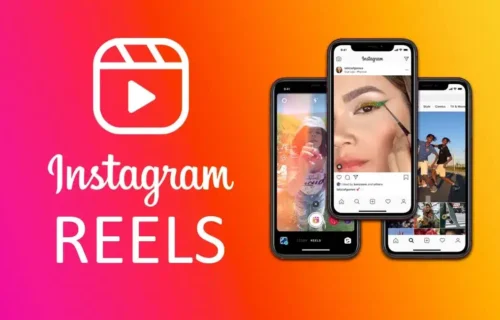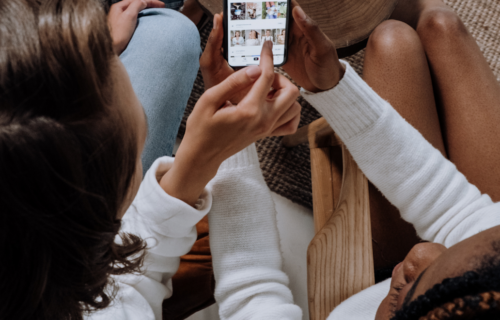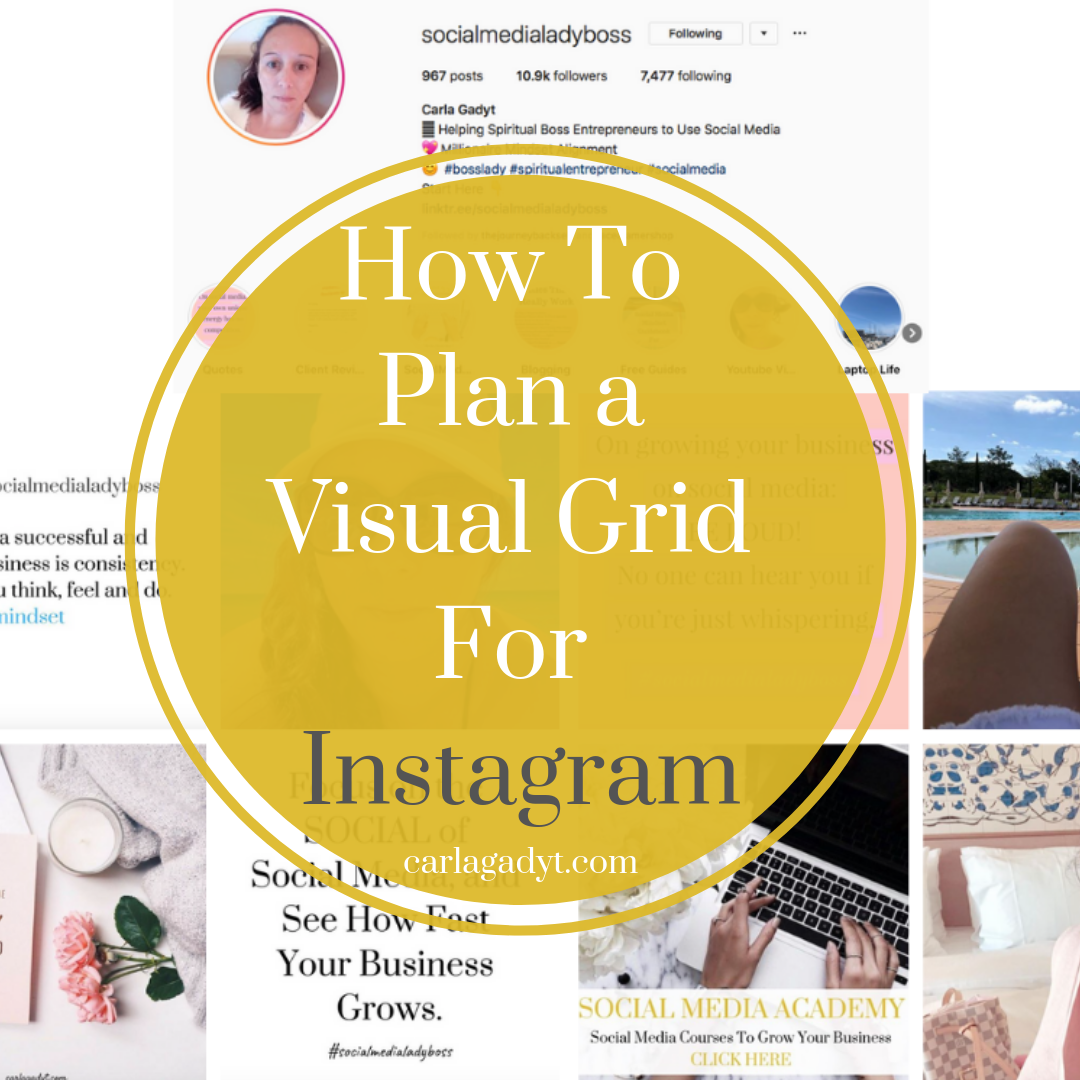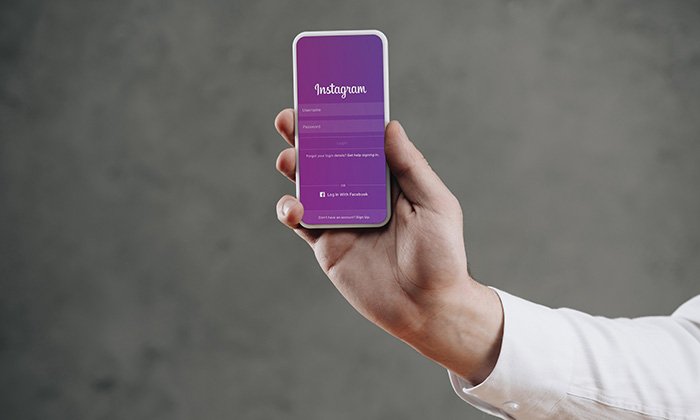
10 Powerful Instagram Marketing Tips (That Actually Work)
Since Instagram’s creation, it has grown into the ultimate platform for sharing photos.
Over 800 million monthly users are active on the site. More than 60 million photos are posted each day, and 1.6 billion daily “likes” are given.
There’s also a large number of influencers on the site with a massive amount of followers. And with the right plan, you can become an influential brand, too.
You need to post the right kind of content to stay relevant to current followers while also bringing in new ones.
But it can be hard to know which kinds of posts work best for growing your audience.
Here are ten powerful Instagram marketing tips (that actually work) that you can use to milk the popular platform for all that it’s worth.
First, you need to switch to a business profile.
1. Switch to a business profile ASAP
Before you start thinking about your Instagram marketing plan, be sure that you have an Instagram Business Account.
It’s easy to switch your current profile to a business account.
Just head to your settings and click on “Switch to Business Profile” to get started.
There are some clear benefits to having a business profile.
For example, followers can click on your contact button to get in touch with you right from your Instagram page just like they would from your website.
A business profile allows you to create and publish Instagram ads without needing to use Facebook’s advertising tools.
You can also access Instagram analytics tools, called Insights, that provide stats about the impressions and reach of your posts.
Once you’ve unlocked the free perks that come along with a business profile, you need to start using them to track metrics and understand your audience.
2. Use free Instagram tools
Business profiles on Instagram aren’t all that different from Facebook business profiles.
Through Insights, you can view statistics like impressions, engagement data, and more.
You can even get a breakdown of the demographics of your followers, including information on their age, gender, location, and most active hours.
Insights aren’t just generalized, either. You can get specific insights on posts for the week that show you how many impressions you earned for that time period and what your top posts were.
These free tools are priceless because you can use them to understand exactly how users are interacting with your content.
The more that you know about how users are interacting with your posts, the better you can adjust your content to boost engagement.
One category of posts that is almost always attention-grabbing is product teasers.
3. Post product teasers that will (gently) urge people to buy
What if you could sell more products just by posting product teasers on Instagram?
Well, you can.
Instagram is a great place to advertise your products. And if you play your cards right, you won’t annoy users or scare them off with advertisements, either.
If you’re too pushy, followers will drop like flies. But product teaser posts are a simple way to talk about your product and increase excitement without looking like you’re trying too hard.
Here are two posts from Gilt Man’s Instagram page that don’t directly try to sell a product, but offer a free app where users can shop all of the brand’s inventory.
The brand offers a 70% off discount while showing you photos of some of the items that are available to purchase.
And the posts received thousands of likes each, which is huge in the advertising world.
The ads work because they aren’t pushy. They’re laid back. They tease users with the discount and product image to download the app and shop around.
This works for almost any industry. Starbucks teases their audience by announcing seasonal drinks with sharp imagery and without trying to force people to buy them.
When you tease people about products they are interested in, and you don’t push them into buying anything, they’ll be more likely to pull the trigger and actually buy something.
If not, they’ll at least engage with your post by liking it, commenting on it, or sharing it with a friend.
So don’t be afraid to show off the goods by posting product photos. Just do it gently.
It also helps to create some sponsored ads.

4. Create sponsored ads
Instagram ads have become commonplace on the platform. The best part? You can control exactly how much you want to spend on them by setting an ad budget.
You can showcase just one sponsored ad or multiple ads with the carousel feature.
This gives brands the ability to target their audience in a whole new way. Before sponsored posts, only users following your account could see your updates and photos.
Now, brands can promote their photos to anyone that fits their target audience to increase their reach further than ever before.
For sponsored ads, use content that is engaging while also appealing to the target demographic you want to put the ad in front of.
You can turn existing posts into sponsored ads, too, so keep an eye on your top posts.
You can push these high-performing posts out later to potential customers in the form of sponsored ads.
Run multiple posts to different audiences simultaneously for even more engagement. Keep in mind that there are many different forms of sponsored ads that you can post, such as:
- Photo
- Video
- Carousel/Dynamic Ads
- Stories
- Stories Canvas
Instagram Stories, sponsored or not, are another great way to connect with followers.
5. Use Instagram Stories
If you want to generate leads, Instagram Stories are here to help.
Instagram stories differ from regular Instagram posts because they come in a “slideshow” format.
They’re only live for 24 hours, but Stories can be saved to any of your devices and reused at a later point.
This feature is very similar to Snapchat Stories (and is even a direct competitor).
Rather than appearing in the news feed, Instagram Stories appear in a small area above it.
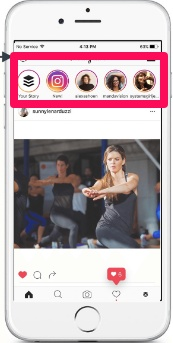
Once a user clicks on your photo at the top, a window will pop up where they can view your Story.
The benefits of Instagram Stories for brands are truly endless. For starters, Stories are displayed at the top of follower timelines where users already look daily.
Brands can use stories to capture behind-the-scenes insider posts that may not be as “high-quality” as regular posts.
And you don’t have to worry as much about posting content that aligns with the “aesthetic” of your brand or your Instagram page when it comes to Stories.
Instagram also makes it easy to experiment with different types of content in the Stories feature, like photos, short video, rewind video, live video, or Boomerangs. You can use tools like Canva and InVideo to create amazing images and videos for your stories.
Boomerangs are GIF-like images that play on a loop.
You can also tag other accounts in Stories, which is great if you’re collaborating with another brand or influencer.
Face filters, text, or stickers make it easy to edit images or create fun, eye-catching visuals.
Every photo and video you add will play in the same sequence that you added it.
The amount of posts that you can add to Stories at any given time is unlimited, and the feature is available to all businesses globally.
Stories are only available on the mobile Instagram app, and it’s not currently possible to send Instagram Stories as direct messages.
But since most Instagram users access the site via the smartphone app rather than the website, this isn’t really something to worry about.
If you haven’t partnered with influencers who are already making a killing on Instagram, find a few that you want to work with and reach out to them.

6. Partner with influencers for a wider reach
If you want to reach potential customers on Instagram, the fastest way to do that is through influencers who have already built an audience with a large following.
More and more people are buying services or products based on what they see in their feed from the influential people they follow. They trust them.
If you partner with the right industry influencer, you can get your brand out in front of those users.
The first step is to try and identify a few influencers that have an audience that is relevant to your product or service.
Here’s an example of how Gravity Blankets used influencer Jessi Smiles to promote their product on her Instagram page.
The post has thousands of likes.
The brand sells weighted blankets for sleep and stress. Their Instagram page has under 10,000 followers.
But Jessi’s page has 493,000 followers that will likely trust her recommendations.
That means that the brand just exposed themselves to thousands of potential customers (and new followers) through one post.
If you throw aside the short-term gains and direct sales that you can make from an influencer campaign, there are even more long term-benefits.
If you build a relationship with each influencer, you’ll build lasting brand awareness with a new audience.
And if you play your cards right, you could even work with a top influencer in the future to gain millions of likes, like Coca-Cola did with this post from Selena Gomez.
Your existing customers might not be influencers, but you can still use their posts to influence people to buy your products by collecting user-submitted photos.
7. Collect user-submitted photos
Wouldn’t it be nice if there was a way to create great content for your Instagram page without doing any of the hard work?
Through user-submitted photos, there is.
You already have an engaged audience. Whether it’s hundreds of people or thousands, you can leverage your audience to generate useful content for you.
And your followers will probably enjoy user-generated content even more than they enjoy yours because it’s authentic and unpredictable.
Cosmetics brand MAC uses tons of user-generated content that they promote on their Instagram page to show off products.
You might be wondering exactly how you can get your users to create engaging content without being pushy.
It’s actually fairly simple. Your audience probably wants to grow their own following, just like you do.
Just let them know that you’ll tag them in your post if you choose their photo to regram, then they’ll have an incentive to post user-generated content on a consistent basis.
It’s a win-win for you and your customers.
GoPro is notorious for this. The brand chooses a #FeaturedPhotographer every week.
The brand (and their followers) treat this like a weekly competition.
If you try something similar, you’ll probably be surprised at just how eager your followers will be to participate.
Remember to choose the photos you want to post wisely. This can be difficult, but try to remember these things when considering a winner:
- Does the photo fit in with the brand image you’ve already created or are trying to create? Or does it go against it?
- How big of a following does the person whose photo you want to share have?
- Is the photo appropriate for your current audience and following?
When you’re running a business, you have to be sure that everything you post is in tune with your brand’s message (and audience). Even on Instagram.
If someone shares a user-generated image with a large following, those followers will probably be interested in checking your page out, too.
Look at how this user-submitted photo from Boosted Boards aligns with the brand’s aesthetic. It’s high-quality, intriguing, and unique.
Choose images that successfully mimic your brand’s tone, like this one.
That being said, try not to be too biased about the content you want to post. Mix it up and watch your follower count and engagement grow.
It also helps to come up with some kind of branded hashtag that encourages Instagram users to be more interactive with your company.
8. Come up with an interactive branded hashtag
If you’re looking to create instant engagement, interactive hashtags are a great way to get it.
Red Bull has racked up over 299,612 posts featuring their tag, #itgivesyouwings.
Customers can then use the tag to post user-generated content. This allows users to search through all posts relating to your brand.
It also lets you easily search through images that you might want to consider re-posting on your own page.
Creating a hashtag that your company (and other users) can search for is essentially free advertising.
Every time someone posts a photo using the tag, they’re exposing your company to their followers.
If you already have a popular brand slogan or phrase, consider making that your branded hashtag. Coca-Cola successfully accomplished this with their hashtag, #ShareACoke.
But no matter what you’re posting, you need to post at the right times and refrain from over-posting.
9. Post at the right times (and don’t over-post)
Over-posting on Instagram is a surefire way to turn off your existing followers.
If all they see is your brand on their news feed, they’re probably going to unfollow you as fast as possible.
But you want to post on a consistent basis so that you stay in their news feed regularly.
One of the best ways to do this is to only post during peak days and hours when your followers are online.
According to SimplyMeasured, the worst days to post on Instagram are Wednesdays and Sundays, while Mondays and Thursdays are the best days to post.
And according to research from CoSchedule, the best times of day to post are between 8:00 AM and 9:00 AM, as well as 2:00 AM.
The hour between of 8:00 and 9:00 AM correlates with the time of day when people are getting ready for work or commuting to their jobs (and checking social media for the day).
And 2:00 AM is the time of day when most folks are up scrolling through Instagram when they should be sleeping, so this makes sense as a second most popular time to post.
You can find when your followers are most active in Instagram Insights, so your best days and times to post might be a bit different depending on your specific audience.
Schedule your posts to go live during these days and times with a tool like Hootsuite, CoSchedule, or Sprout Social.
The research also shows that you should post between one and two times per day, but no more or less.
If you’re tempted to post more, then use Instagram’s carousel album feature to post multiple images in a slideshow format.
That way, you won’t overwhelm your followers’ feeds.
After you’ve made these changes, track your metrics to keep an eye on areas where you can improve.
10. Make sure you track the right metrics
You can’t improve your Instagram performance and optimize it unless you know how well your page and posts are performing (or underperforming).
When you have measurable results, you’ll know exactly what works and what doesn’t.
Begin by tracking your follower growth rate.
The total amount of followers you have is commonly seen as a vanity metric. And it is.
But your follower growth rate isn’t.
When you keep an eye on what the growth rate of your followers looks like, you can see how the kind of content your posting (or your posting frequency) is affecting things.
Track your follower growth rate with a tool like Influencer Dashboard.
Next, measure engagement rates. This includes likes and comments.
You want to find out the average engagement percentage of your total followers as well as the average engagement rate of each post to get a clear picture of how your page is performing.
If you’ve got a smaller following, your engagement rate should be higher. Here’s what your rates should look like based on your follower count:
Finally, you need to track your URL click-through rate.
If you don’t already have a link to your website in your Instagram bio, add one ASAP.
Then, measure how many people are clicking through to your URL.
The average CTR on Instagram is 0.94%, according to Conversion XL.
The more effective your Instagram marketing techniques on your audience, the higher your CTR will be. If it’s low, work on improving your approach.
A tool like Sprout Social will measure just how many clicks that your link is getting in comparison to impressions and engagements.
Conclusion
Instagram has dominated the social media world. It’s the go-to place for image sharing, with over 800 million monthly users.
Billions of likes are handed out each day, so you need to do your part to scoop some of them up.
First, switch your profile to an Instagram Business Profile if you haven’t already. This will give you tons of free tools and insights.
Next, start taking advantage of those free tools. Check out your audience’s demographics, like their age or top locations.
Post product teasers to urge people to buy your products or services without being overly pushy. They’ll be more likely to buy if they don’t feel pressured.
Turn your posts into sponsored ads to reach target audiences that may not be following you yet. One post might just have them hooked.
Use Instagram Stories to post behind-the-scenes photos or videos. Followers will appreciate the insider posts, which builds your relationship with customers.
Partner with influencers that have a wide reach in your industry. Their followers trust their recommendations.
Be sure to leverage the power of user-generated content by reposting images that your customers share. You can turn this into a contest with an interactive branded hashtag.
Choose a photo to share every week or every month that aligns with your brand’s message.
Post at the right times and avoid overposting. Post one to two times every day and check out when your followers are most active. Schedule posts to go live during those days and times.
Finally, be sure that you track the right metrics to see how your Instagram marketing efforts are paying off.
Keep an eye on follower growth rate, engagement rate, and your URL click-through rate.
What Instagram marketing techniques work best for you and your brand?









